Natallia Radzina: Belarus Should Not Become the Second Crimea
- 14.02.2019, 16:27
- 15,646
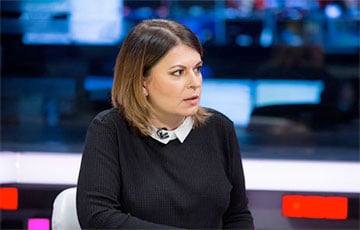
Photo: Rostislav Gordon / Gordonua.com
Everyone should be interested in free, democratic Belarus.
Editor-in-chief of the Belarusian opposition website "Charter-97" Natallia Radzina told that on air of GORDON online-editorial of Alesya Batsman on 112 Ukraine TV channel. The text version of the interview is exclusively provided by GORDON.
Belarus has been a subsidized Russian region for 25 years.
- Good evening, Natallia!
- Good evening, Alesya!
- You are the editor-in-chief of the most famous Belarusian opposition edition "Charter-97", the image of Belarusian journalism in exile for Europe and America, for the whole civilized world. I think many of our viewers have heard your name, but may not know how you look like. They will during our program!
(They smile).
- Thank you for an opportunity to meet and to talk about my native country - Belarus.
- I'd like to start with it. In the fall of 2018, an intriguing event was held in Kiev. U.S. ambassadors to Ukraine and Russia gathered. The meeting was held behind close doors. In the end [the Russian economist] Andrei Illarionov, who was also present at the meeting, stood up and said in warm blood: "Friends, don't you understand that the next annexation that Russia will carry out is the annexation of Belarus? Aren't you going to do anything? If you had done something after Russia invaded Georgia and unleashed the war there, there would have been no annexation of Crimea and no war in Ukraine". Tell me, how real is Russia's annexation of Belarus now?
- Unfortunately, it's absolutely real. The situation has been triggered by Aliaksandr Lukashenka, the Belarusian dictator who has been ruling the country for 25 years. I do not like current discussion about Belarus, which is taking place in Ukraine as well. When it comes to the threat of annexation of Belarus by Russia, dictator Lukashenka is always presented as a defender of the Belarusian independence. I'd like to explain that the current situation is like that because Lukashenka has been a puppet of the Kremlin for 25 years and done everything to destroy "Belarus" in Belarus, to destroy respect for ourselves as the nation. He did not allow the Belarusian culture to develop; he ruined the Belarusian history. Let me remind you that the Belarusian language is not available at universities, schools or on state television today. Lukashenka is the reason of it. He also persecuted the nationally oriented Belarusian democratic opposition and independent media, which always stood for principles of independence and sovereignty of Belarus. Under conditions when Russia can finally seize Belarus, which is completely dependent on Russia in political and military terms, which is also the fault of Lukashenka; he continues persecution of democratic opposition and independent media. Today, Charter-97 is blocked in Belarus. It used to be the most popular and authoritative resource that really resisted the Russian propaganda. Today this site is closed by Lukashenka. However, Russian TV channels are publicly available. Russian propaganda brainwashes Belarusians.
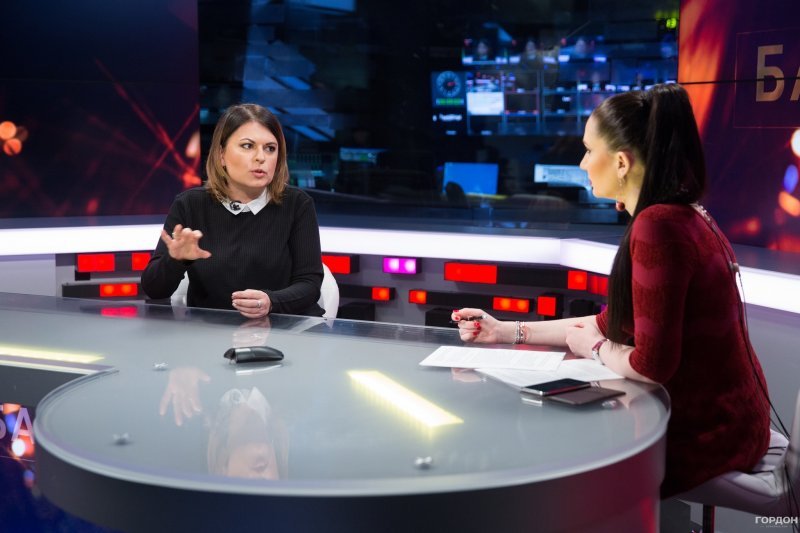
- Why is this threat growing now? Why does Putin think about it? Many of those who analyze the situation point out the following as the main motive: if Putin actually creates a new state with a new constitution, he has a legitimate way to a new presidency. He may call himself a tsar or an emperor, not a president. Thus, the problem of 2024 is solved. Why is this the main motive? Or is there another reason why he is so aggressive and active now, judging by the media space?
- It's hard for me to understand what Putin is thinking about. It's quite clear that Russia today is a predatory regime waging war against Ukraine and threatening Belarus and other countries of the post-Soviet region. It's clear that Russia's bad news. It is clear that Russia is running out of money. It cannot finance the Belarusian dictatorship in the same amount. Things ignored in Ukraine: there's no Lukashenka's economic miracle, but the Russian subsidized Belarusian economy. Over 25 years, former director of a state farm Lukashenka has not passed any economic reforms. Cheap Russian energy carriers, Russian loans, endless subsidies and infusions have kept it afloat. That's all.
- If Belarus becomes, in fact, a region of Russia, it does not solve the issue of financing, does it? Will Russia's money be spent anyway?
- Belarus has been a subsidized Russian region for 25 years. But huge money allocated by Russia, first, was stolen; second, it was spent on power structures that allowed Lukashenka to retain power; third, it was used by Lukashenka and his family. There's a reason why Lukashenka is called one of the richest leaders of the former Soviet Union.
- How much money do you think he has?
- I can't provide precise figures, but they equal to billions of dollars. This is absolutely certain.
- Where can he save this money?
- There was a theory that in the UAE. They said that one time it was kept in Serbia in Milosevic's times (Serbian President in 1991-1997, Yugoslavian President in 1997-2000 Slobodan Milosevic - GORDON's note). there are many guessings about it, but it's not the point. Russia realises that a great number of subsidies have been wasted by Lukashenka himself. And today Russia perceives him as a bad manager of Belarus. Relations between Putin and Lukashenka are being discussed. And I'd like to say that only a free democratic Belarus is a factor of stability in the region. Both Ukraine and the Western countries are interested in a free democratic Belarus. But for some reason it is not discussed, as well as necessity to help the democratic opposition and independent media, civil society. Let's take Ukraine and Crimea as an example of clear and similar situation. Why did Ukraine lose Crimea? How much did Ukraine do for Crimea? How much is Crimea Ukrainian? Now I don't go to Crimea, but before the occupation, I went there and saw a lot of Russian there. Russian culture and Russian citizens...
- There are many factors and conditions contributing to Russia's annexation of Crimea.
- Yes. But Ukraine should have been presented more in Crimea. There should have been a certain information policy.
- Yes, of course.
- Certain political and economic steps should have been taken by Ukraine. Now something similar is happening to Belarus.
- How will Europe and America, if anything, express their deep concern? The way they acted about Ukraine? Or will they realise that there is a threat to them too, if Russia expands like this?
- If Belarus is finally seized by Russia, and becomes completely Russian, a completely different situation in the region will emerge. This is a direct threat to Ukraine because Russian troops will deploy on its northern border. It will drastically change the situation, and Ukraine will face new grave problems. This is a direct threat to Poland, Lithuania and Latvia. The war will take more acute form, and one must realise it. But even under Lukashenka Belarus is potentially a very risky territory.
- Ukrainian politicians do not still realise this. It is discussed among journalists, not among politicians. Is there any discussion in Europe? Are any real steps being made? Or will we extinguish fire when it starts, and come what may?
- I can say that the military realise the threat coming from the territory of Belarus. NATO directly states that the Belarusian Army is a part of the Russian one. European and American politicians, unfortunately, prefer to ignore the problem. Don't trouble trouble till trouble troubles you. But this is not a solution. It's a powder keg, a time-delayed bomb. It will explode anyway. It's quite clear that no stability in Belarus is expected. It's impossible to freeze the situation. We do not mention the situation in Belarus. It suffers from a serious economic crisis, people live in poverty today. Unfortunately, the Ukrainians do not know this either.
- It's an issue that I want to discuss with you. When you come to Belarus as a tourist, what do you see? You see the purity, beauty, order, cool, high-quality products that one can't find anywhere else. People you meet say that they live good and stable life. This is the picture one sees. Ukraine believes that Lukashenka cares about people. What is wrong? Is this biased? What is really going on?
- Yes, it is biased. I do not know what country you've been to, but it's not Belarus.
- I was in Minsk during Minsk negotiations in 2015.
- It's clean, but it's like in a military barrack. I live in Europe, cities are clean everywhere I go. I can't understand talks about clean Minsk. This is an illusion. We are talking about restored facades and painted fences. In reality, 80% of Belarusians, without exaggeration, hate dictator Lukashenka.
- Wow!
- The country suffers a serious economic crisis. I will tell, for example, about the level of wages in Belarus. An average salary in the regions today is $80. Pensions are $80-100. An average salary in Minsk is about $300. Lukashenka has been saying for the last five-six years: "We'll have an average salary of $500". But he fails to meet it. Prices are much higher than in Ukraine, I can compare them. What kind of people's love can we talk about? The number of police officers in Belarus per 100 thousand people is seven times higher than in the Soviet Union. Please remember eight - nine special services. The power is based on force. For 25 years, mouse and man have been destroyed in the country. They killed political leaders and journalists, closed down independent media, imprisoned human rights defenders, falsified all elections and suppressed protest demonstrations. There are no independent TV channels. Independent Belsat TV channel broadcasts from Poland, but it misses the audience public TV channels have. Ukraine was lucky enough to avoid such a grave political situation neither under [Leonid] Kuchma, nor under [Viktor] Yanukovich, as it is under Lukashenka in Belarus.
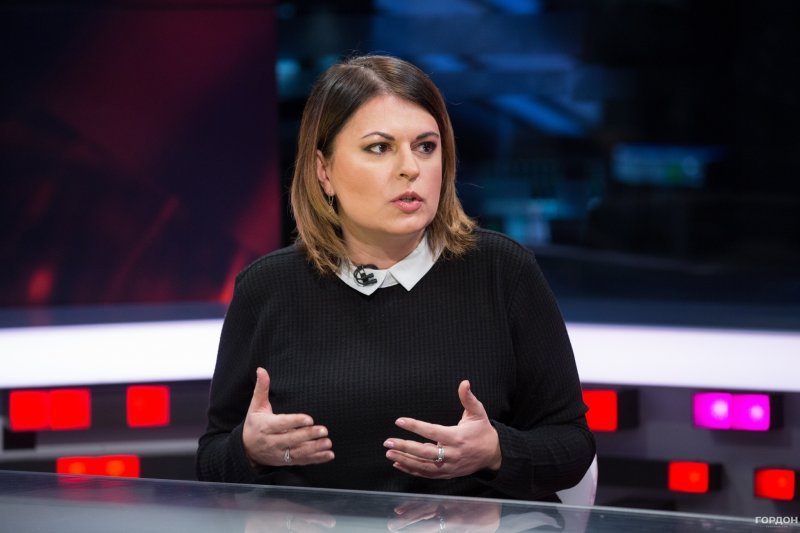
Lukashenka is an awful person. Ukrainians and Russians call him "batska", although it's an insult to a Belarusian. Lukashenka himself came up with this nickname. This dictator has deprived some people of their lives, health, and future. There is no popular love for Lukashenka. I can't stand hearing Oleh Lyashko, the presidential candidate, say "I will be as good leader for the Ukrainians as Lukashenka is for the Belarusians". It's like "I will be like Hitler".
- How do ordinary citizens of Belarus feel about Ukraine and the war unleashed by Russia? Are their brains washed by Russian propaganda to the same extent as those of Russians?
- Unfortunately, Ukraine does nothing to make Belarusians be aware of events in this country.
- There was an agreement between Ukrainian President Petro Poroshenko and Lukashenka about one channel broadcasting in Belarus, but still...
- ...it's not done yet. If there is no such channel, how will the Belarusians learn about events in Ukraine? Of course, they watch Russian television. Belarusian television, in general, repeats the Russian propaganda and covers events in Ukraine in almost similar way. Perhaps, it's less aggressive, but they are extremely negative about Euromaidan, Ukrainians, reforms and the country's leadership. After Euromaidan, the Russian propaganda formed the following image: if you join protest actions, you may be killed, as it happened in Ukraine.
- I get it.
- Fascist criminal regime and so on. The Charter has immediately launched a project to support Ukraine. For several years we had a special Ukrainian news feed; every day we published 200-300 news from Ukraine to inform Belarusians what real events occurred in Ukraine. We wrote about volunteers, reforms, things Ukrainians could be proud of. We asked Ukraine for support: to help us to defend your own interests. Unfortunately, no one needed that.
- Let's simulate the situation. In the face of the threat of any form of annexation - a pseudo-referendum as in the Crimea or something else - can the Belarusian society, at least the most active part of it, mobilize and go to Maidan and against Lukashenka, and against the life you are telling us about, and against seizure of Belarus by Russia?
- Now the situation in Belarus is unique. Presidential and parliamentary elections are upcoming. Of course, these are not the elections that Ukraine will hold. Obviously, the Belarusian opposition will participate in them and become an active participant in these campaigns. Mikalai Statkevich, one of the founders of the Belarusian National Army and an officer, declared his intention to run for presidency. He spent about eight years in prison under Lukashenka, including for his participation in protests against election frauds in 2010. He makes it clear that if Russia tries to occupy Belarus, it could have a second Afghanistan. I can say for sure that Belarusians will resist.
- Do you believe that Maidan is possible in Belarus?
- Yes, of course. Belarusians have been fighting for their freedom for 25 years. Belarushas never been obidient. It fought, challenged the election frauds, tens of thousands of people came to the square. There are many heroes in the country. Many Belarusians are also at war in Ukraine today.
- Yes.
- They are ready to defend independence of Belarus.
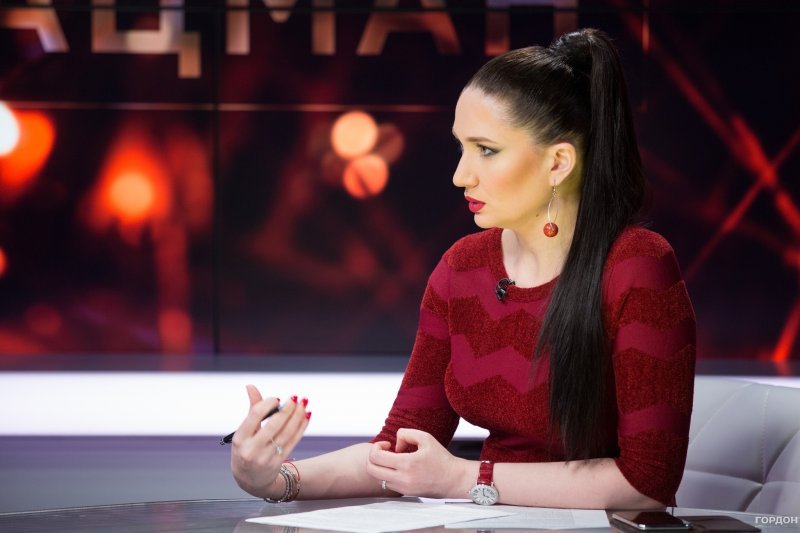
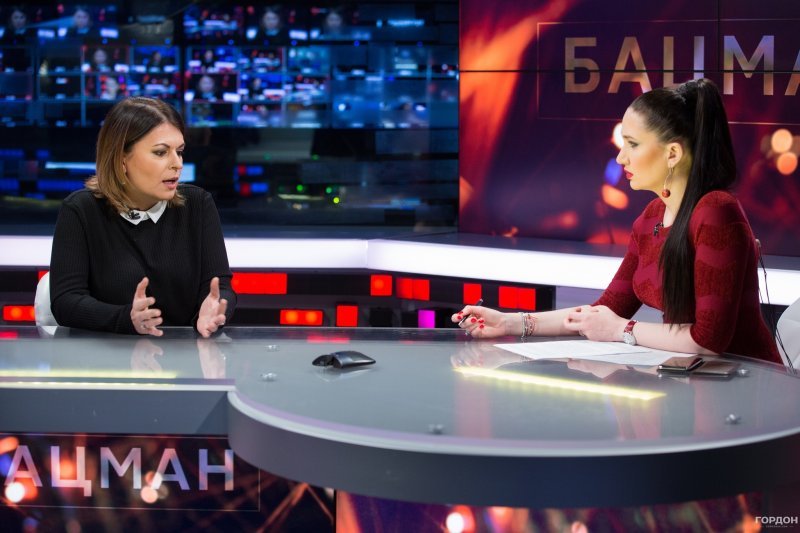
- I've mentioned that my latest visit to Minsk was in 2015. It was the negotiation time between President Poroshenko, German Chancellor Angela Merkel, French President François Hollande and Russian President Vladimir Putin. Lukashenka hosted everyone. Those were unprecedented negotiations, which lasted 17 hours at the presidential level, and resulted in the Minsk Accords. I watched how much Lukashenka wanted to please the European leaders joking and smiling. I understand that there was a reason. He really wants to retain his position, and not to be a governor, a vassal of Putin. He enjoys the status when he can run an independent country and do whatever he wants. Is it possible for Lukashenka who wants to preserve his position to bow down to Europe? To completely sever ties with the Kremlin, to refuse loans? To follow the example of Ukraine. Ukraine is bleeding while severing these ties... And, having received support, to launch changes, democratization, to return freedom of speech, freedom of rallies, etc.
- It's the perfect scenario...
- ...and possible?
- The democratic opposition offered him to sit down at the negotiating table. It would have been represented by opposition leaders - Andrei Sannikov, former presidential candidate Mikalai Statkevich, others. They would have discussed ways for Belarus to overcome the crisis and under guarantees of Lukashenka's security, etc. But instead, Lukashenka continued repressions against the opposition, began to block independent websites; people are still imprisoned. That was his response to the proposal. How else can he get out of Moscow's hand, as you say, give up Russian loans, leave the Union State, terminate agreements in the military and political spheres, give up Russian energy resources? It means that market and political reforms should be passed in the country...
- ...yes, it includes all the bunch.
- The IMF loan is also stipulated by reforms.
- In fact, if he wants to preserve himself, you think he will not be able to...
- It's a loss of power to him. He is well aware of this. Because he will have to open the country to the West.
- He's resisting now. Andrei Piontkovsky made an interesting statement: if Lukashenka resists Putin, the Kremlin can kill him. Do you think this is possible?
- Maybe Andrei Piontkovsky knows more. I can say that such a scenario awaits any puppet. Since Lukashenka has initially made himself dependent... Agreements with him were clearly made in 1994 - conditions for his presidency and for receiving Russian money. He knew consequences. Now, apparently, he expects a miracle to happen - someone will come from the West, [Donald] Trump will come from Washington D.C...
- ...a wizard comes all of a sudden...
- ...yes. And he'll say "Here's $10 billion per year for you. You will still run Belarus, do whatever you want, destroy your democrats, imprison and kill journalists. But you must give up on Russia". He is probably awaiting such a scenario. But it is just dreams.
- Are there oligarchs in Belarus?
- No. There's one oligarch. This is Lukashenka, who let several businessmen to exist in exchange for their money. They split the country and the economy. From time to time, these businessmen are imprisoned.
- Is it true that he re-educates them?
- Yes, they all were prisoners.
- His businessmen?
- Yes. They are released, pay him huge amounts and obey his every word.
- What is there attitude then?
- They are afraid of him. They know that their lives, business, money belong to one person — Lukashenka.
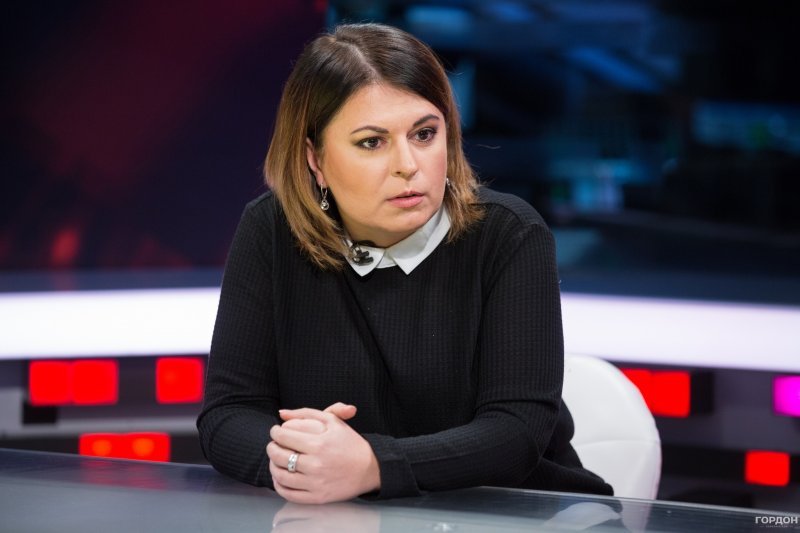
- Natallia, next question may seem strange. Whom do Belarusians like more - Lukashenka or Putin?
- Belarusians hate Lukashenka. Unfortunately, independent media and an alternative point of view are being destroyed, and Putin is becoming a very popular politician in Belarus. But you know... A bald devil is better than Lukashenka. This is the attitude of Belarusians to the situation. When Russian TV channels and radio stations are publicly available...
- ...propaganda...
- ...newspapers are sold, a huge number of Russian sites are available on the Internet, and independent sites are blocked. Naturally, people have an image of a great Putin, who comes, rescues, raises wages and launches plants. But this will not happen, of course.
- I read your memoirs about the time in the Belarusian prison. It was 2010, wasn't it?
- Yes.
- I was shocked. I quote "The head of the isolation ward said it would be five years before you were released. And I promise you, you won't be able to give birth. He ordered to put me in a ward without a toilet and a bed. In January, I had to sleep on wood boards in a cold ward. Toilet was allowed once a day at 4-5 pm, you were escorted. I stopped drinking water. I could drink one or two small cups of tea a day to warm up. But still I suffered from bad pain... A prison doctor instead of a clear concussion after beating in the Square diagnosed "prison ward adaptation". Though my ears were bleeding". Why were you detained and beaten?
- I was the editor-in-chief of the website, who wrote about true events in Belarus and gave the floor to independent presidential candidates. They stated then if the elections were rigged once again, people had to take to the streets and protest. In 2010, almost all independent presidential candidates, members of their election headquarters and I, as chief editor of the main opposition resource, were arrested.
- How much time did you spend behind bars?
- I spent a month and a half in the KGB detention facility. Then I was under house arrest for another two months, under supervision in the town of Kobrin, Brest region. I was forbidden to live in Minsk and given a day to pack things.
- It resembles the Soviet times.
- Yes. And then I had to escape. I realised that it was impossible to work in such conditions.
- What was the worst and the most humiliating thing in prison?
- Humiliating... They tried to let you know you were nobody. We were completely isolated, we had neither independent newspapers nor TV set. We were not allowed to receive letters. Letters we wrote to our families weren't sent. We were constantly told at all interrogations that we were all considered enemies, criminals, and nobody supported us in Belarus and the West had branded us all. I was officially charged under the article "organization of social unrest," it's up to 15 years in prison. It was hard to hear that you might face 15 years. But the thing is, I didn't believe it anyway. Before imprisonment I wrote a lot about political prisoners and just knew that Belarus and the world did not forget people who fought for freedom. Of course, it encouraged me. Belarusian prisons are awful. Probably, they haven't become more comfortable since Stalin's time. There are no toilets in wards. In any case, there was no toilet in my ward. Only cold water. I was sleeping on wooden boards, the so-called bunk bed. It was winter. There were no women guards, only men. As soon as political prisoners were arrested, all guards were replaced with people of an unknown unit. They were wearing neck face masks, had batons and tasers. We didn't see their faces, only eyes. They were beating men. I heard constant screams. We had to move very fast. If you were taken to the infirmary, to the toilet once every four hours, or to an interrogation, you had to move very quickly. They yelled, insulted us. It hurts human dignity.
- Did you have thoughts you might stay there forever and no one would help you?
- No. I was praying. I knew it would end.
- Weren't you afraid to continue your activities after that? You didn't give up and I can see your persistence...
- I know that it is necessary. There is no way back. I won't be able to live in Belarus anyway. This dictatorship, this arrogance, attempts to break everything good in people exist at all levels. Not only if you are engaged in journalism or want to win elections. I won't be able to live in my own country, even if I repent publicly (which is a fantasy), and do anything. They will bother me anyway. And I do not want to live in such a country. The country needs to be changed, and I want to do it. I have to do my best. If I can do something, I must do it.
- If the situation changes, will you go in for policy then?
- (Smiling). Let's get some changes before and only then I will make a decision.
- Who did you manage to escape?
- It was difficult. I should write a book about it, because when I start talking about it, I can't believe myself. It was set of circumstances and God's will. First of all, my friends helped me to leave the territory of Belarus. It was a night drive.
- Where you were? In the trunk or in the back seat?
- Under the backseat, I was lying on the floor. My hair was bright red. I had no documents, because the KGB confiscated my passport. I had no documents for several months, which I had to spend in Kobrin waiting for the trial. I had to escape. I was taken to Russia. It is the only option because it does not require documents to cross the border. My friends drove a road in the region not the highway. They took me to Moscow. Then my friends from abroad got in. The U.S. Department of State, specifically Assistant [Secretary of State] Hillary Clinton Tom Melia, got in. The U.S. Embassy in Moscow, the United Nations High Commissioner for Refugees aimed to grant me refugee status through the UN and to help me leave for the West. No one new I was in Moscow, because I realised that I might be extradited to Belarus. I was lucky enough that Dmitry Medvedev was the president and they tried...
- to play democracy?
- To play democracy and build healthy relations with the West. Even [Russian Foreign Minister Sergei] Lavrov and Medvedev condemned Lukashenka for repressions he had carried out in Belarus in 2010. Thanks to support of Americans and the fact that a wonderful human rights activist Svetlana Gannushkina, who fronted for my interests and rescued me, I was able to leave Russia four months later. I was given temporary documents. I arrived in Lithuania and was granted political asylum. During those four months that I grew grey because I did not know what would happen to me. Take care of your passport, it is very important. (Smiles).
- Why did you choose Poland and still live there?
- I was invited to Poland just six months after I arrived in Lithuania. The Ministry of Foreign Affairs invited me. They offered to continue work from Warsaw. Poland supports several major independent Belarusian media today. Belsat TV channel and Radio Racyja are broadcasting from Poland. And it supports the largest opposition website Charter-97. However, we still have a correspondent office in Lithuania. The Foreign Ministry of Lithuania supports us, we are very grateful to it.
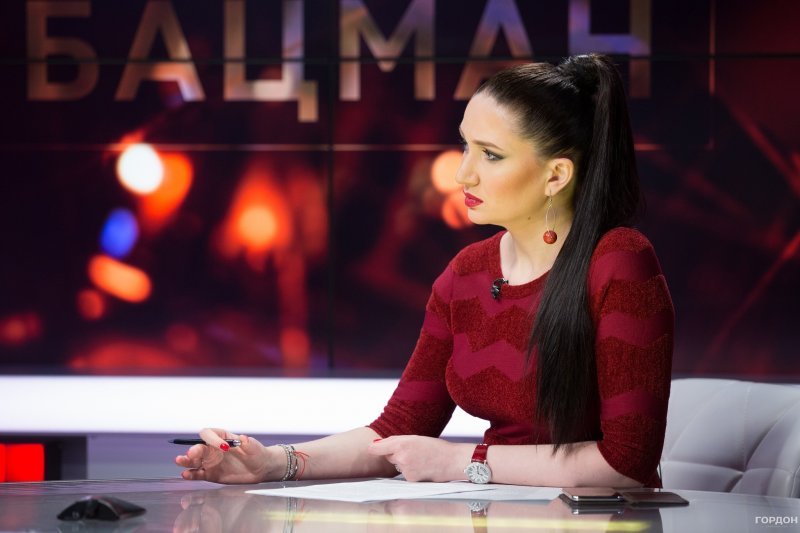
- How does the activity of the Charter-97 editorial office look in practice today? You need to get information from Belarus, don't you? So, should your journalists be like partisans there?
- People do not advertise that they work for Charter, because it's immediately fraught with troubles. In particular, they will have to bear responsibility for those publications that appear on the site. The best option for our editorial office is to work abroad. When journalists can work without fear of being arrested. Im Minsk the office was repeatedly attacked, editors were beaten and all the equipment was confiscated. Journalists, working in Belarus, inform us clandestinely. We do a lot of things from Warsaw: contact public people in the country not to disclose our employees. In the age of information technologies, it's not difficult to do it.
- Not everything is controlled by the KGB of Belarus, isn't it?
- There are messengers that are still hard to hack. So it's safe to communicate with people for now.
- You say that today Belarus is a big smuggling hub. Why?
- It's no secret that goods move from the EU to Russia, from Ukraine to Russia and from Russia to Ukraine through the territory of Belarus bypassing the sanctions. In general, this explains loyalty of the Ukrainian authorities towards Lukashenka.
- Do you mean parmesan from Belarus, lobsters grown in Minsk?
(They smile).
- Yes, it concerns Western goods for sale in Russia. This explains loyalty of Western politicians. Indeed, Norwegian salmon is supplied to Russia as Belarusian salmon. The same applies to Polish apples and meat, which move through Belarus.
- What is the major product exported from Ukraine?
- I can't say for sure. But a huge part of Belarusian oil products made of Russian oil is available in Ukraine. This is Sechin oil. Russians themselves know what Ukrainian tanks are fueled with. Products can be very different, including those for military purposes. Ukrainian journalists should investigate, you have more opportunities. To investigate what ties dictator Lukashenka has with Ukrainian authorities and oligarchs, and why this is hushed up. Major part of mass media does not dare to criticize Lukashenka.
- Do you think they are scared?
- Well... I can't believe in no interest in the neighbouring country. In the country which may serve as the ground for an attack on Ukraine.
- I guess our conversation may contribute to investigations. Tell me, is Lukashenka training his successor? Or does he plan to rule forever?
- I guess he plans to rule forever. He will certainly fail. But he can' t imagine himself out of power. Such people are full of complexes. They are scared. I don't think he has a successor. It may cause serious problems for him, because, as experience shows, it is better to leave in time.
- On 24 January, a Ukrainian court passed a sentence on Viktor Yanukovych, a fugitive president of Ukraine. He was sentenced to 13 years in prison. Should Lukashenka make conclusions?
- Absolutely. He may be charged under the same articles. Treason against the fatherland. If he does not understand that today, in the face of threats from Russia, negotiations with the opposition are needed, as well as cessation of pressure on journalists. Otherwise, he may face imprisonment.
- We you return, if you are given guarantees?
- I don't believe this person. He deceives everyone all the time. How can one believe such people?
- It's been more than two years since the murder of Pavel Sheremet in the center of Kiev. You knew him well, you were friends and almost colleagues. Still murderers are not found. How do you explain it?
- Ukrainian journalists should explain this. I can say there are different versions. In particular, Belarusian special services may be involved. It might be a joint operation of the Russian and Belarusian special services. Whatever one likes. The fact is that Pavel was a dangerous journalist for Lukashenka. There are two leading opposition websites in Belarus - Charter-97 and Belarusian Partisan. Founder of Charter-97, Aleh Bebenin was killed in 2010. Founder of Partisan, Pavel Sheremet, was also killed. It may be coincidence or not. Of course, it should be investigated. The longer the investigation in Ukraine lasts, the more questions arise.
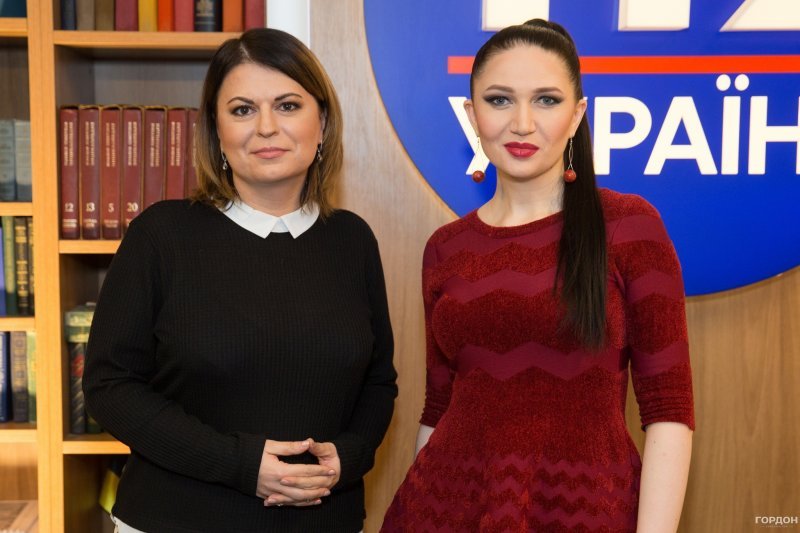
- You have not been to Belarus for eight years. Do you want back?
- Yes, of course. I want to live only there. I can't stand the thought that I may stay abroad for the rest of my life. I want to live in Belarus.
- Do you have relatives and close friends there?
- Yes. My parents, brother, sister, nephews and friends live there.
- Did your activity anyhow affect your family? Or are there any rules and the family is not bothered?
- Everybody knows they're under control. They have been threatened. There are difficulties, albeit not disastrous ones. My family suffered when I was in prison and escaped. Everyone was searched, including my grandparents. Constant interrogations. Fortunately, it has stopped.
- Do your parents support you?
- Yes, of course.
- Do they visit you in Poland?
- Yes, they do. They have always supported me, I am grateful to them for it. I never heard a single reproach. I always got the support I needed.
- But they worry about you...
Yes, as well as your parents worry about you. It's typical for all parents.
-I am grateful to you for the interview.
- Thank you, Alesya!
***
If you like this article, you can support the website Charter97.org:
DONATION VIA PAYPAL:
MULTI-CURRENCY ACCOUNT FOR ASSISTANCE:
Bank's name: Bank Millennium S.A.
Address: ul. Stanislawa Zaryna, 2A, 02-593, Warszawa
IBAN: PL 97 1160 2202 0000 0002 1671 1123
SWIFT: BIGBPLPW
Name of the account holder: Fundacja “KARTA ‘97”
Purpose/title of payment: Donation for statuary aims
You can contact us by the e-mail charter97@gmail.com










